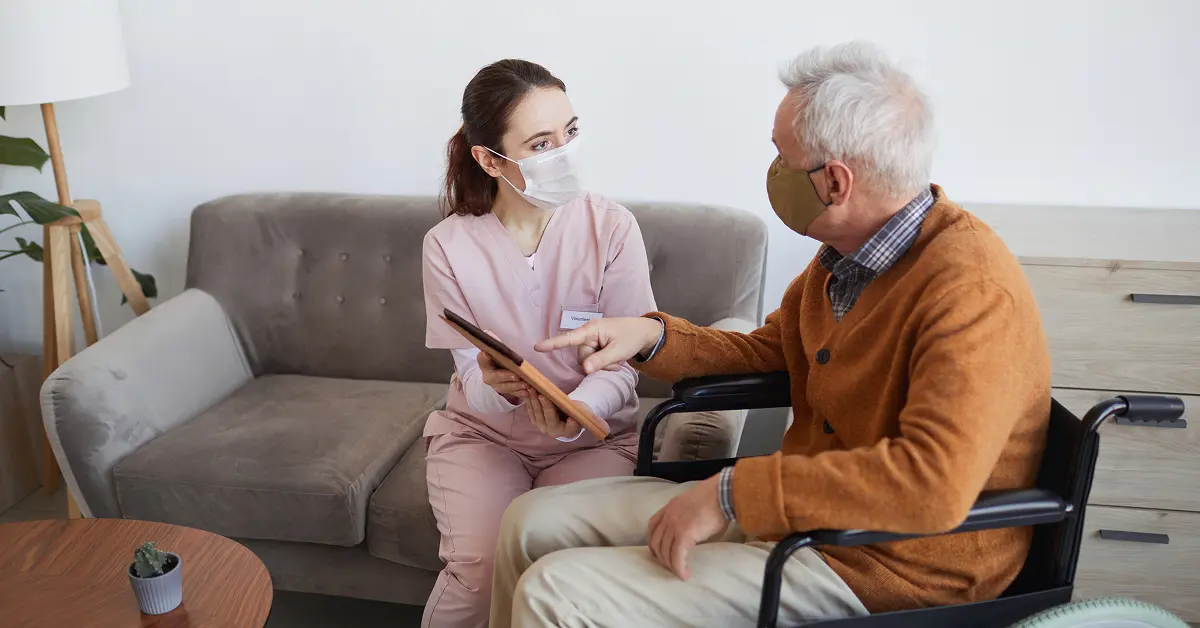Caring for ageing parents is a responsibility most Indian families take to heart. In our culture, respect and care for elders are deeply rooted values. But with changing lifestyles, busy work schedules, and nuclear families becoming more common, providing consistent care for senior parents can be challenging. Many families eventually consider at-home care services — but knowing exactly when to start can be a tough decision.
Starting too early might feel unnecessary, while waiting too long can compromise your parents’ safety and well-being. In this guide, we’ll discuss the signs, considerations, and steps for deciding the right time to begin at-home care for your Senior Care Services
Understanding At-Home Care for Seniors
At-home care involves professional caregivers visiting your parents at their residence to provide medical, personal, or emotional support. Depending on the needs, it can range from a few hours a day to round-the-clock assistance.
Common services include:
- Help with bathing, dressing, and grooming
- Meal preparation and feeding
- Medication reminders
- Mobility assistance
- Companionship
- Light housekeeping
- Monitoring health conditions
In India, this trend is gaining popularity due to the convenience, personalised attention, and the comfort it provides to seniors in a familiar environment.
Signs It’s Time to Start At-Home Care
While each family’s situation is unique, here are key signs that suggest it might be time to arrange professional help.
a) Decline in Daily Living Activities
If your parent struggles with basic activities like bathing, cooking, or cleaning, it’s a strong indicator they may benefit from at-home support. For example:
- Clothes remain unwashed for days
- Meals are skipped or consist only of snacks
- Personal hygiene is neglected
b) Increased Risk of Falls or Accidents
Falls are one of the most common causes of injury among older adults. If your parent seems unsteady, complains of dizziness, or has already fallen once, preventive measures like having a caregiver around can make a huge difference.
c) Memory Loss and Confusion
Early signs of dementia or Alzheimer’s — forgetting appointments, misplacing items, or getting lost in familiar areas — are red flags. Caregivers can ensure safety and routine management.
d) Declining Physical Health
If your parent has chronic conditions like diabetes, heart disease, or arthritis, and needs regular monitoring or assistance with medicines, professional care at home can ensure they follow their treatment plan correctly.
e) Social Isolation and Loneliness
With children busy and friends moving away or passing on, many seniors suffer from loneliness, which can affect mental health. A caregiver can offer much-needed companionship.
Common Triggers for Families in India
- Both spouses work full-time and cannot provide daytime supervision.
- Parents live alone in a different city from their children.
- A recent hospitalisation requires post-discharge recovery support.
- A health scare prompts the need for constant monitoring.
Benefits of Starting at the Right Time
- Prevent falls and injuries
- Improve nutrition and medication adherence
- Provide emotional support and companionship
- Reduce family stress and burnout
- Allow parents to live independently for longer
By contrast, delaying care until after an accident or health emergency often leads to higher costs, longer recovery times, and more stress for everyone involved.
Overcoming Guilt or Resistance
Many Indian parents resist outside help, thinking it’s the family’s sole duty. Similarly, children may feel guilty for not providing all the care themselves. It’s important to remember:
- Professional care supplements family love, not replaces it.
- Caregivers bring skills and experience that most family members don’t have.
- Your well-being as a caregiver is equally important.
Having an open conversation with your parents about their needs, fears, and preferences is essential. You can also start with a few hours of care per week and increase gradually.
Choosing the Right At-Home Care Service
- Type of care needed: Personal care, medical care, or both.
- Service provider reputation: Check reviews, ask for references.
- Caregiver training: Ensure they have proper skills and background checks.
- Flexibility: Ability to adjust hours or services as needs change.
- Cost: Compare prices in your city; in India, at-home care can range from ₹500 to ₹1,500 per day depending on location and services.
Steps to Start the Process
- Assess Needs – Identify daily challenges your parents face.
- Consult a Doctor – Get professional advice on required support.
- Discuss with Family – Involve siblings or close relatives.
- Contact Agencies – Shortlist reputable home care providers.
- Trial Period – Start with a short-term arrangement to see how your parents adjust.
Final Thoughts
Knowing when to start at-home care for senior parents is about balancing their independence with their safety and well-being. If you notice signs of physical decline, memory issues, frequent loneliness, or difficulty managing daily tasks, it’s better to take action sooner rather than later.
In India, the emotional aspect of this decision can be as important as the practical one. By approaching the conversation with empathy and focusing on your parents’ comfort, you can make the transition smoother for everyone.
At-home care is not a sign of neglect — it’s a way to ensure your parents live their later years with dignity, safety, and happiness.
Contents
Our 24*7 services
Latest Posts
- What Is Respite Care and Why Is It Important
- Affordable home care for senior citizens in India
- Caring for Seniors with Dementia or Alzheimer's at Home
- Senior Caregiving A Guide for Every Family
- How to Write a Caregiver Resume That Gets You Hired
- How Care After Hospital Discharge Speeds Up Recovery at Home
- How to Get Home Health Care for Seniors Through Medicare
- What Does a Senior Citizen Caregiver Really Do at Home
- How to Care for Elderly Parents with Alzheimer’s or Dementia
- How to Get 24-Hour Care for Seniors at Home



